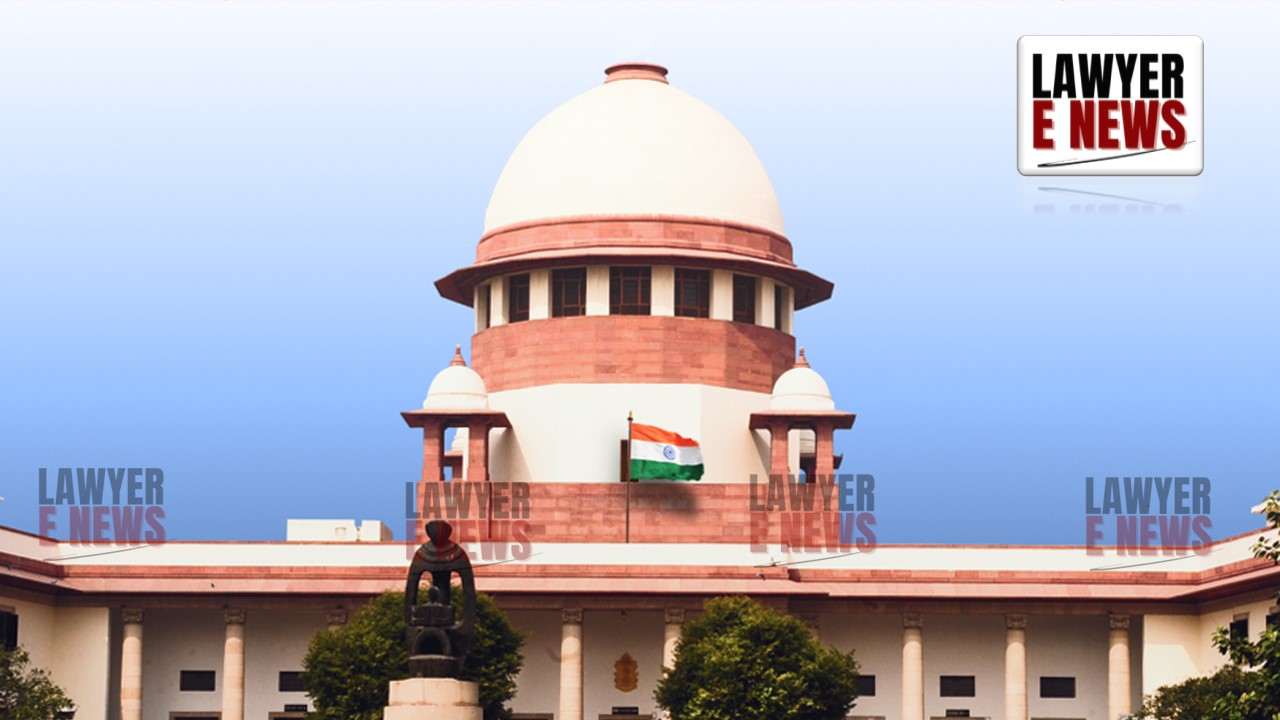-
by Admin
15 February 2026 5:01 PM



The direction to reconsider facts cannot be equated with an order for reinvestigation, and must be interpreted as a continuation of investigation aligned with law - Supreme Court of India upheld a Metropolitan Magistrate’s order directing reconsideration of a case based on a protest petition filed by the appellant. The Court found the Telangana High Court’s quashing of the Magistrate’s order to be improper, emphasizing that the Magistrate’s directive for reconsideration fell within the scope of law.
At the heart of the case was the interpretation of the term “reconsider the case” used in the Metropolitan Magistrate’s docket order dated July 21, 2014. The High Court had held that the Magistrate’s directive amounted to a reinvestigation, which was beyond the Magistrate’s jurisdiction. However, the Supreme Court disagreed, observing:
“The choice of expression by the learned Metropolitan Magistrate may not have been appropriate. However, the meaning of the said expression could be discerned as a direction for a continuation of the investigation, having regard to the material on record.”
The Supreme Court clarified that directing reconsideration does not amount to ordering a fresh reinvestigation but aligns with the Magistrate’s power to ensure fair and complete examination of facts in response to a protest petition.
The appellant, P.N.D. Prasad, had filed a protest petition against a police report filed under Section 202 CrPC in Crime No. 408 of 2013, which classified the case as false. The protest petition cited sworn statements and expert opinions alleging forged signatures and fabricated documents. Considering this material, the Magistrate directed the investigating agency to:
“Reconsider the case and ascertain the true facts based on the sworn statement of the complainant and expert opinion.”
The private respondents (accused) challenged this order in the Telangana High Court, which quashed the Magistrate’s directive, terming it as an unauthorized direction for reinvestigation.
The Court clarified that a Magistrate, while dealing with a protest petition, has the authority to direct further examination of facts. It emphasized:
“The direction to reconsider the case was not a directive to conduct reinvestigation but rather to continue the investigation by verifying expert opinions and sworn statements already on record.”
The Court referred to its earlier ruling in Vishnu Kumar Tiwari vs. State of Uttar Pradesh, (2019) 8 SCC 27, which permits such directions if they align with principles of fair investigation.
The Supreme Court found that the High Court exceeded its jurisdiction under Section 482 CrPC by interpreting the Magistrate’s order incorrectly. Justice Nagarathna noted:
“The High Court failed to consider the true import of the docket order. Quashing the Magistrate’s order without fully appreciating its intent and scope was improper.”
The High Court had earlier acknowledged that there was a prima facie case against the private respondents, making the quashing of the Magistrate’s order all the more unwarranted.
The Supreme Court allowed the appeal, setting aside the High Court’s observations in paragraphs 14 and 15 of its order, which quashed the Magistrate’s directive. It upheld the Magistrate’s order, directing that it be implemented in accordance with law:
“The learned Metropolitan Magistrate is now directed to indicate the consequence of the said order and to conclude the proceedings in accordance with law by following the procedure envisaged under the CrPC.”
Reconsideration vs. Reinvestigation: A directive to reconsider facts in light of new evidence does not amount to ordering reinvestigation and is within the Magistrate’s jurisdiction.
Magistrate’s Role in Protest Petitions: Magistrates have the authority to direct continuation of investigation based on material such as sworn statements and expert reports, ensuring fair and complete investigation.
High Court’s Limited Jurisdiction: Under Section 482 CrPC, High Courts must refrain from interfering with Magistrate’s orders unless there is a clear jurisdictional or legal error.
Decision Date: December 5, 2024
